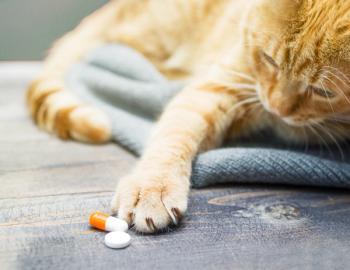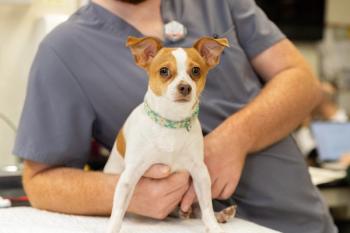
Next-gen technologies that are transforming animal health care
A breakdown of the latest technologies advancing animal health care, from artificial intelligence–driven diagnostics and IoT devices to genomics, telemedicine, and blockchain.
In today’s fast-moving tech world, a constellation of disruptive technologies is driving a digital revolution in animal health care. Many new technologies have quickly advanced the way animals are cared for. Innovations range from artificial intelligence (AI) designed for predictive diagnostics to Internet of Things (IoT)-based wearable devices that can monitor pets in real time, and telemedicine enabling remote consultation to genomics aiding the formulation of personalized care routines.
Surgical precision and data transparency are also being improved through robotics and blockchain. At the heart of many of these breakthroughs is a custom health care software development company, Appinventiv, that creates customized solutions to incorporate these advanced technologies into user-friendly interfaces.1
Moreover, wearable devices are often overlooked during animal health care discussions, but they play a major role. These devices allow for early diagnosis and smarter treatments that help improve the overall health and well-being of animals. Whether dairy cows on smart farms or domestic cats, technology and AI are transforming animal care, giving veterinarians, researchers, farmers, and pet owners access to more accurate, personalized, and predictive health care for animals.
This article explores new tech innovations, including animal monitoring that can improve patient care, wearable animal devices, and other instruments redefining animal health.
AI: More accurate predictive care and diagnosis
AI powers numerous innovations in animal health care. It can examine intricate patterns from diagnostic images, genetic information, and even behavioral data through machine learning algorithms.
- AI in veterinary medicine: These AI algorithms can already outperform human specialists when interpreting x-rays and MRI or CT scans. Some algorithms can even discriminate fractures, tumors, or organ anomalies much faster than humans can, occasionally with improved accuracy.
- Predictive analytics: In livestock management, peripheral AI applications can predict disease outbreaks. For instance, in dairy farming, mastitis outbreaks can be predicted well ahead of time, allowing timely farmer intervention to avert escalation.
- Chatbots and virtual assistants: Some veterinary clinics have embraced AI-powered chatbots and virtual aides that can triage patients, manage appointment calendars, give basic medical advice, and answer basic questions posed by clients.
IoT technology in animal health
Imagine a pet collar that notifies owners when an animal is stressed, sick, or injured. IoT devices make all of this possible.
- Wearable IoT devices for pets: Smart pet collars and vests come with sensors that monitor a pet's vital signs, such as heart rate, temperature, and activity levels. If something goes wrong, an alert is sent to your veterinarian or your phone.
- Livestock IoT devices: Smart cattle ear tags, boluses, and ankle bracelets enable herd health monitoring and aid in strategizing optimal feeding, fertility cycles, and disease management.
- Environmental IoT monitoring: Specialized sensors can track temperature, humidity, and air quality in barns, taking care of animals' optimum conditions.
Telemedicine: Veterinary care without borders
Just like telemedicine transformed human health care services during the COVID-19 pandemic, this virtual form of care is also changing how veterinarians interact with patients.
- Video consultations: Now, clients can book a video call with a veterinarian, making it smoother to seek expert opinions for minor issues, postoperative care, or second opinions.
- Tele-triage services: Dedicated health care apps offer veterinary support around the clock to guide owners on whether an urgent visit is needed or whether home care will suffice.
- Health records mobile applications: With a health record–based mobile app, owners can digitally store and share vaccination records, medications, and medical histories, facilitating communication between veterinarians and clients.
Genomics and precision medicine: Custom-fit treatment at genetic sequencing level
One more change on the horizon is genomics—the study of an animal’s genetic code to optimize health care.
- Breed-specific insights: Testing patients with a DNA testing kit can reveal specific traits in the animal, such as habits and allergies.
- Milestones: More sophisticated treatments are using stem cell therapy, using the animal’s fat cells for enhanced efficacy.
- Advanced genomic breeding for agricultural animals: Genomics enables the selective breeding of more productive and resilient agricultural animals, resulting in decreased overall diseases and improved profits.
Drones and surgical robots: Facilitating patient treatment and farming
Seen as a far-fetched dream not too long ago, robotics in animal health care is an everyday reality.
- Computer-assisted surgeries: It enhances the skill of veterinary surgeons, and robotic arms are deployed during keyhole surgeries.
- Robotic systems in agriculture: Drones are used for monitoring and controlling bovine households. Milking, cleaning barns, and even sickness detection are now automated.
Big data and predictive analytics: Powering proactive health
Animal health care generates vast amounts of data, from vet records to activity logs from wearables. Big data analytics transform this information into actionable insights.
- Health trend analysis: By studying data across thousands of animals, we can identify emerging health risks and regional disease patterns.
- Personalized alerts: Platforms like IDEXX use data to send customized wellness alerts to clients, nudging them about pet vaccinations, diet changes, or preventive screenings.
- Farm management software: Big data help farmers monitor herd performance, detect productivity issues early, and optimize resources like feed and medication.
Blockchain technology: Safeguarding animal health records
Amid all the sensitive information being exchanged, blockchain technology offers a secure solution.
- No alterations are possible: Blockchain guarantees precision and accuracy in protecting an individual’s health record, including the vaccination and treatment history.
- Visibility into the supply chain: In the case of animal husbandry and food production, blockchain monitors an animal’s life cycle from birth through its life until it’s sold, enhancing food safety and traceability.
The road ahead: A smarter, healthier future
The fusion of these technologies isn’t happening in isolation—it’s creating a synergistic ecosystem where AI analyzes IoT data, telemedicine uses big data insights, and genomics informs personalized care plans.
Imagine this scenario: A farmer receives a mobile alert from a smart collar indicating early symptoms of illness in a cow. An AI diagnostic platform analyzes the data, suggests preventive measures, and schedules a telemedicine consultation—all automatically, in real time. Blockchain secures the treatment record for future reference.
This is no longer science fiction—it’s the emerging reality of next-generation animal health care.
Summing it up
Digital transformation in animal health care is giving new meaning to animal wellness, surpassing simple treatment. AI, IoT, telemedicine, genomics, and blockchain are advancing care in a more intelligent, rapid, and compassionate manner.
Pet owners, farmers, and veterinarians who adopt these technologies are not just innovating—they are forging a new, sustainable frontier for every creature, regardless of their size. While these technologies continue to progress, it is certain that the future of animal health care will rely on both intelligent systems and caring hearts for optimal balance.
Stephan Hawke is a seasoned digital strategist and writer with more than a decade of experience in health care technology, software development, and digital transformation. Based in New York, Hawke has collaborated with leading organizations, providing insights into how emerging technologies like artificial intelligence, Internet of Medical Things, and blockchain are reshaping the health care industry. His articles have explored topics ranging from telemedicine advancements to custom health care software solutions, offering actionable insights for industry leaders.
References
- Appinventiv. Appinventiv. Accessed May 1, 2025.
https://appinventiv.com/
Newsletter
From exam room tips to practice management insights, get trusted veterinary news delivered straight to your inbox—subscribe to dvm360.





